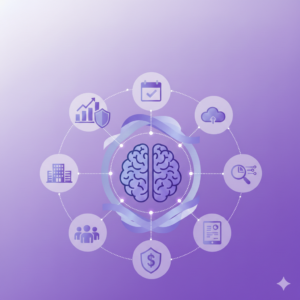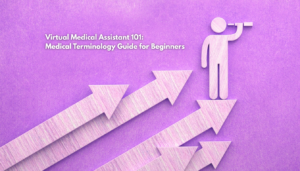The Importance of Documentation in Healthcare: Ensuring Quality and Safety
12 Nov 2025 By: Vlade Legaspi
Updated
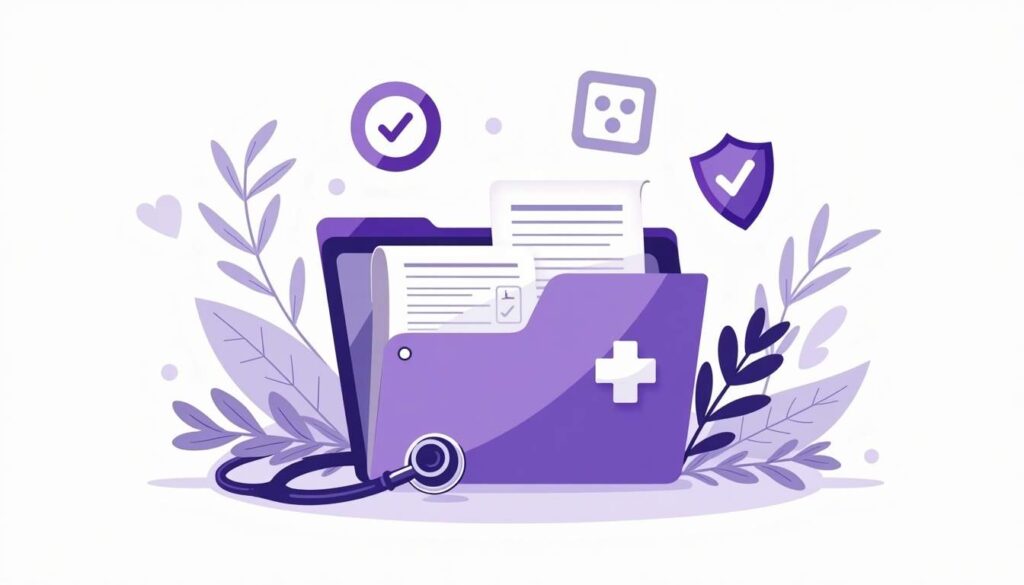
Healthcare documentation is essential because it keeps patients safe and care teams aligned with accurate, up-to-date records. Clear notes reduce preventable errors, support continuity of care across multiple providers, and provide legal and regulatory proof of what was done and why. For example, recording a patient’s penicillin allergy and current medications can prevent a dangerous drug reaction and avoid delays in treatment.
Why Documentation Matters More Than Ever
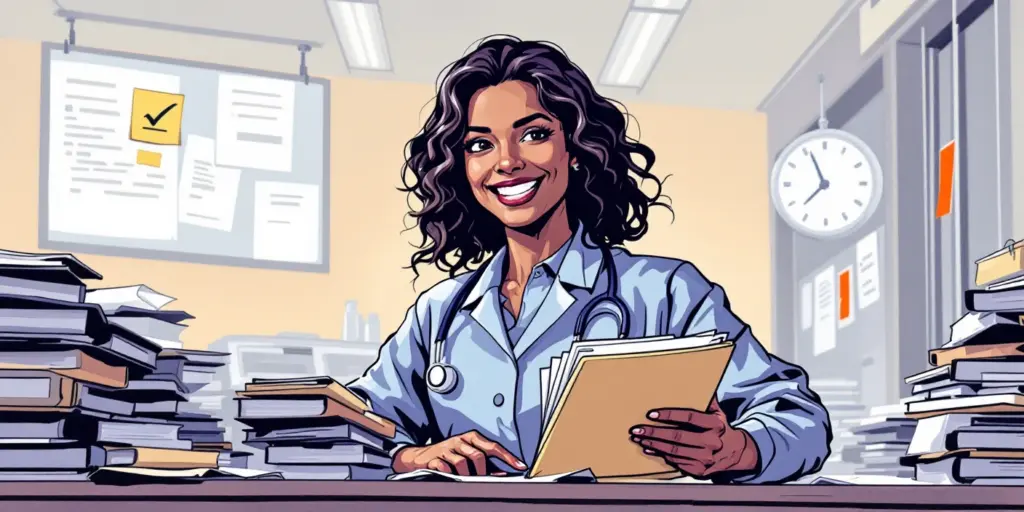
Healthcare is complex, where each choice carries serious risk. Accurate records support care, teamwork, and legal safety. Without them, errors rise fast.
The World Health Organization says 1 in 10 patients suffer preventable harm. In the U.S., a 2016 BMJ study found medical errors rank third in deaths. The importance of documentation in healthcare lies in its power to cut these mistakes by keeping all providers on the same page.
Supporting Continuity of Care
Patients often visit many providers, doctors, ERs, rehab centers. Each visit adds new details like test results, treatments, or drug changes.
Without full records, key info can vanish or get mixed up. With clear notes, care stays smooth, cutting repeat tests and bad drug mixes. The importance of documentation in healthcare shows here, it helps chronic patients get steady, complete care. It keeps all doctors on the same page and improves outcomes.
Legal and Regulatory Compliance
Healthcare records also serve as legal proof. They protect patients and staff by showing a clear timeline of care and choices made.
In lawsuits, strong records can defend against costly claims. The importance of documentation in healthcare grows as groups like The Joint Commission demand full records for approval. Good records also help providers get paid and funded. With care now judged on results, solid records prove quality and protect a provider’s name and income.
Key Elements of Effective Healthcare Documentation

Not all records help. Quality counts. The importance of documentation in healthcare means notes must be clear, brief, timely, and complete.
Clarity and Precision
Medical terms are needed, but notes must be clear to all care team members. Vague phrases can confuse and lead to errors.
Instead of “patient stable,” list vitals and symptoms. The importance of documentation in healthcare means being exact and avoiding guesses. “Patient seems anxious” should include signs like high pulse or restlessness. Clear, fact-based notes help now and later. Using standard terms also cuts confusion between teams.
Timeliness
Writing care notes right away is key. Waiting can cause lost facts or mistakes. EHRs help by letting staff log details at the point of care.
Fast updates help teams act quickly, especially in urgent cases. The importance of documentation in healthcare shows in how it tracks changes clearly. It also helps teams work better together. With fresh info, everyone stays on the same page and gives the right care at the right time.
Comprehensiveness
Good notes cover all care details, history, checks, actions, results, and plans. Missing info, like a penicillin allergy, can cause real harm.
The importance of documentation in healthcare includes personal facts too, preferences, consent, and social factors. These help tailor safe care. Full records also help teams find trends and fix weak spots. This boosts care for all and builds a safer, smarter system.
Technology’s Role in Enhancing Documentation
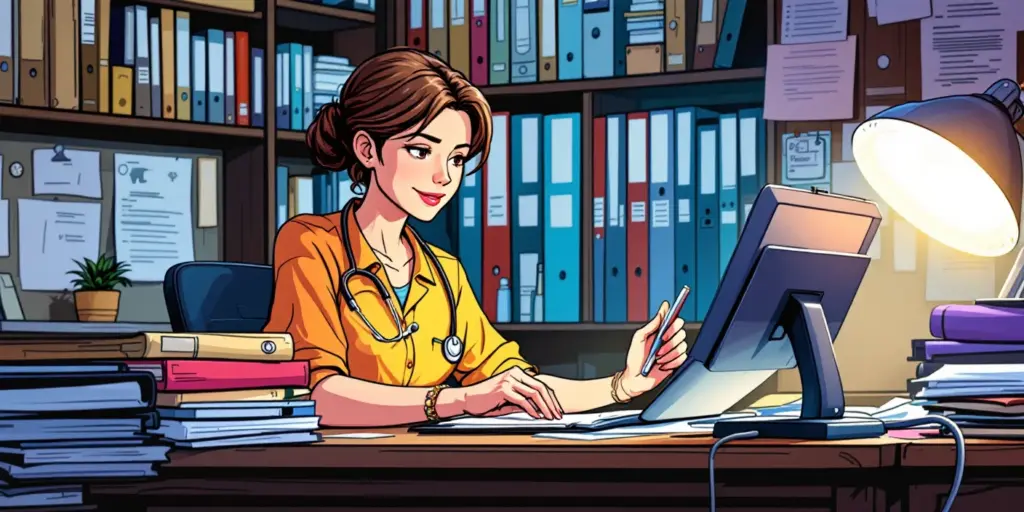
Switching from paper to digital records changed healthcare. EHRs bring many benefits but also raise new problems.
The importance of documentation in healthcare grows with EHR use. These systems boost speed and access but can face tech issues or data overload.
Benefits of Electronic Health Records
EHRs help care decisions with alerts and reminders. They flag drug risks or missed tests, pushing quick action.
The importance of documentation in healthcare shows as EHR data finds trends. This helps stop illness early and boost public health. It improves care for each person and whole groups.
Challenges and Pitfalls
EHRs help, but they can cause problems too. Copy-paste habits and long templates often fill notes with useless or wrong details.
This “note bloat” hides key facts and may lead to missed health clues. The importance of documentation in healthcare means notes must stay clear and useful.
Hard-to-use systems and slow data entry also frustrate staff. Many feel burned out from EHR demands. Groups now push for faster tools that let providers focus on care, not clicks.
Emerging Technologies
AI and voice tools now help with notes. They cut admin work and boost accuracy but must be used with care to avoid new mistakes.
AI can suggest treatments. Voice tools write while doctors talk, helping them focus on patients. The importance of documentation in healthcare means tech must be tested and safe.
AI in EHRs can also spot risks early. This helps prevent problems and cut costs. But tech use must protect privacy and give staff proper training.
Training and Culture: The Human Side of Documentation
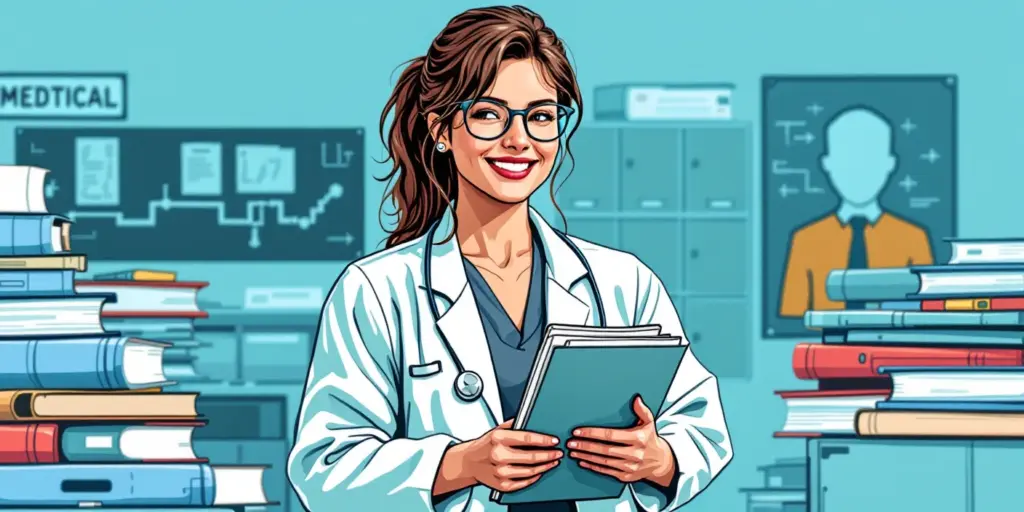
Tech helps, but it’s not enough. Staff need training in good habits and a workplace that values clear, correct notes.
The importance of documentation in healthcare depends on both tools and people.
Education and Skill Development
Training in note-taking must start early in medical and nursing school. Staff should know how to document and why it matters.
The importance of documentation in healthcare grows when staff train with real cases and EHR tools. Practice helps them learn safely and improve their skills fast.
Encouraging Accountability and Transparency
Healthcare groups must build a culture where staff own their notes and know the impact on care. Talking openly about errors helps fix systems.
The importance of documentation in healthcare shows when leaders set the tone. Praise good work, hold review meetings, and back peer checks. This teamwork lifts care for all.
The Impact of Documentation on Patient Safety and Quality of Care
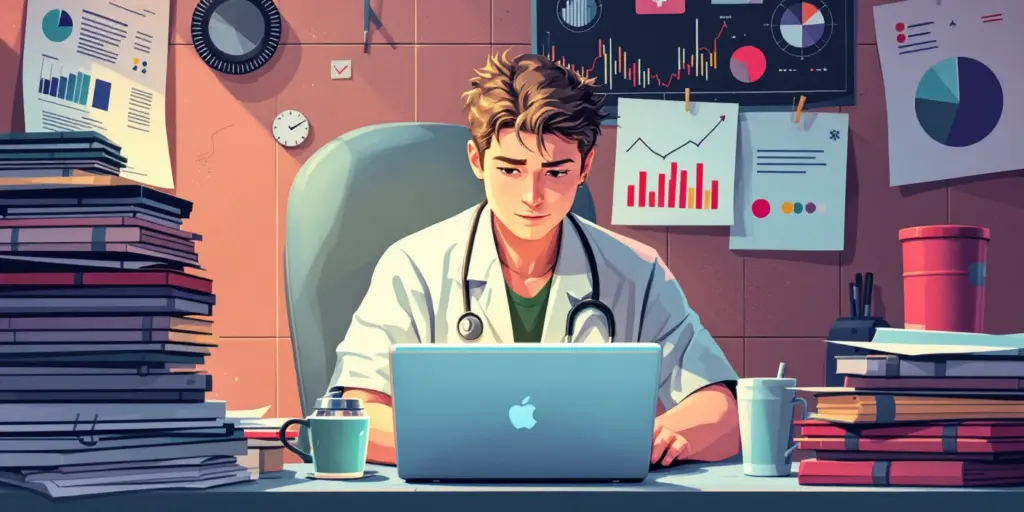
At its heart, documentation protects patients. The Institute of Medicine’s report “To Err is Human” showed many mistakes come from weak communication.
The importance of documentation in healthcare lies in preventing these errors. Clear records keep teams informed and patients safe.
Reducing Medication Errors
Mistakes in giving medications turn up pretty often. They pose serious risks to patients. Keeping straightforward records on the specific drugs, exact dosages, and known allergies goes a long way toward preventing those harmful drug incidents.
The importance of documentation in healthcare is clear. A Journal of Patient Safety study showed standard note rules cut errors by 30%.
EHRs also changed how meds are tracked. They flag drug risks and allergies fast. This keeps care safe and info fresh for all providers.
Enhancing Diagnostic Accuracy
Clear notes on symptoms, test results, and thinking help doctors find the right diagnosis. They track changes and cut delays or mistakes in care.
The importance of documentation in healthcare is key in tough cases. It helps teams work together and use smart tools to guide treatment.
Good records also show past visits and what worked. This deeper view helps manage long-term health and improve results.
Supporting Patient Engagement
More patients now see their records through portals. Clear notes help them understand issues and join in care choices.
The importance of documentation in healthcare grows with patient access. It cuts confusion and helps people follow treatment plans.
When patients read their records, they take charge of their health. This leads to better talks, smarter choices, and stronger care partnerships.
Common Documentation Challenges and How to Overcome Them
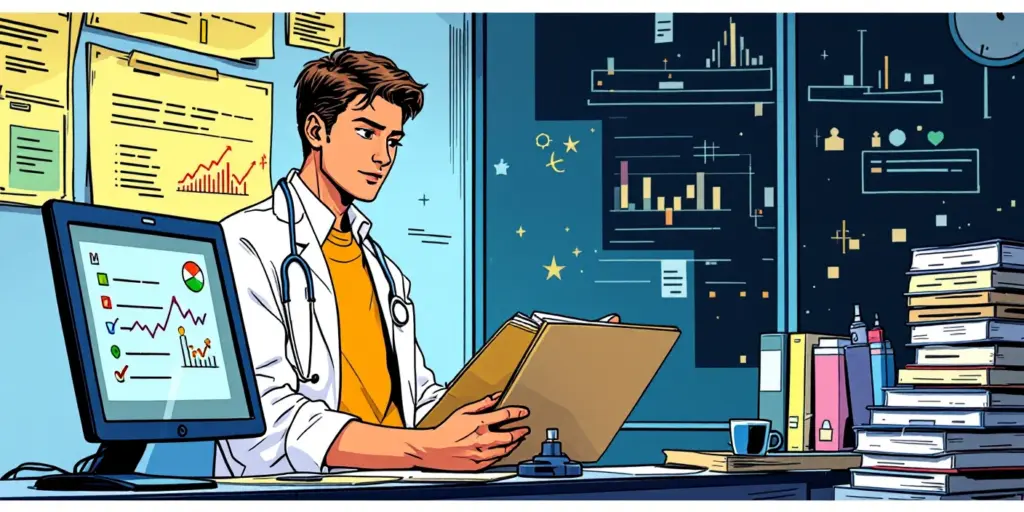
Despite its importance, documentation often faces obstacles that can compromise quality.
Time Constraints
Busy providers often face time pressure, which can cause rushed or missing notes.
The importance of documentation in healthcare means finding smart fixes. Tools like scribes and voice-powered EHRs help save time.
Setting aside time for notes during shifts also helps. These steps let staff focus on care while keeping records clear and complete.
Inconsistent Standards
Different note styles can cause confusion and missed info. Clear rules and templates help keep records consistent.
The importance of documentation in healthcare means training matters too. A shared system with easy templates keeps staff on track.
A culture of accountability and learning boosts note quality. Better notes lead to safer care and stronger results.
Data Privacy and Security
Protecting patient data is key. Systems must follow laws like HIPAA, balancing access and privacy.
The importance of documentation in healthcare includes strong data security. Audits, training, and encryption keep records safe.
Using two-step logins and having a clear breach plan helps staff respond fast. These steps protect both patients and providers.
Looking Ahead: The Future of Healthcare Documentation
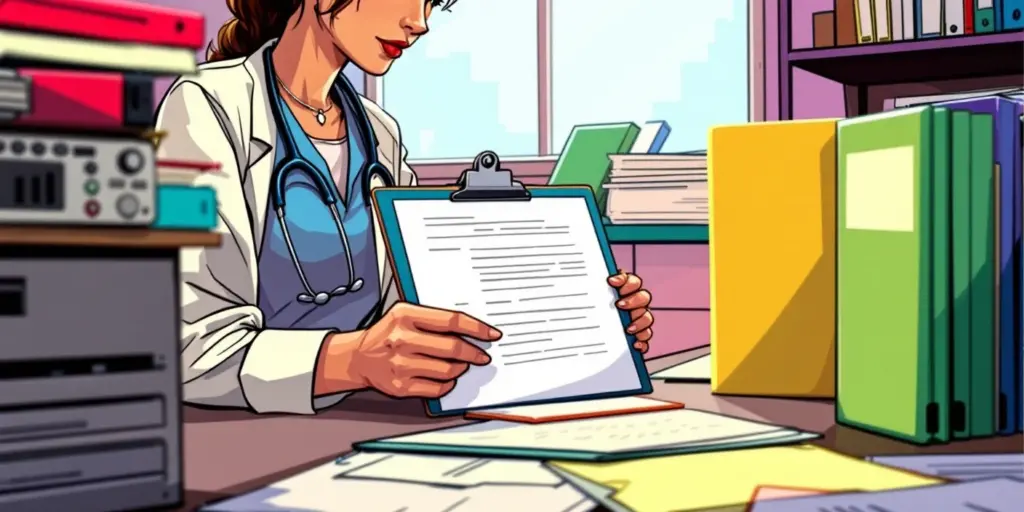
Healthcare is changing fast, and so is documentation. AI, big data, and personalized care need sharper, more flexible records.
The importance of documentation in healthcare will grow as predictive tools help spot risks early. Records must track current data, trends, and future risks.
Systems will soon connect better, letting providers share full histories fast. This boosts teamwork, cuts mistakes, and improves care.
Telehealth and remote tools add new layers. Records must adapt while staying safe and legal. Clear, strong systems are key.
Patients will also shape their records. Letting them view and add info builds trust and improves care. This shared effort leads to better results.
Trending Now!
Thorough and accurate documentation plays a key role in healthcare settings. It affects patient safety right away, along with how providers communicate, the financial side of things, and legal safeguards too. When documentation falls short, it often causes medical mistakes, breaks in patient care, rejected insurance claims, lower payments, and risks of lawsuits. These issues end up hurting patients as well as the organizations that serve them. Given all that hangs in the balance, plenty of providers turn to clinical documentation improvement systems, or CDI for short. They use these to boost accuracy, smooth out daily workflows, and help with smarter choices on the spot.
To get better at documentation, teams need to stick with solid habits over time. Things like checking charts regularly, setting clear rules for writing notes, organizing data input in a structured way, handling electronic queries efficiently, and relying on tools for real-time clinical advice all make a difference. Facilities that build up these processes see real gains. Patient results improve, claim rejections drop off, payments come quicker, and legal worries ease up some. In the end, strong documentation lifts the quality of care while also helping organizations stay profitable. That puts CDI front and center as a must-have in todays healthcare world.
Final Thoughts
If you want to improve how you handle documentation and give your team reliable help around the clock, HelpSquad Health stands ready to work alongside you. Our specialists in healthcare support have the training to make workflows run smoother, improve how people communicate, and keep all your records precise while meeting compliance standards.
You can see exactly how HelpSquad Health helps your group provide care that feels safer, goes more smoothly, and connects everyone better.
